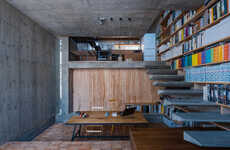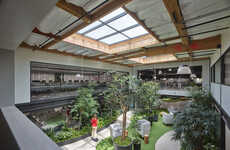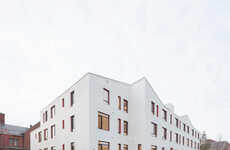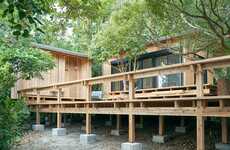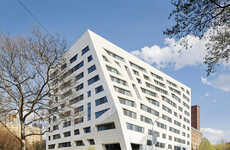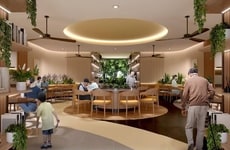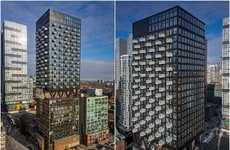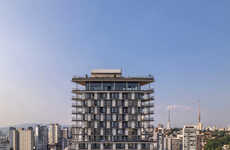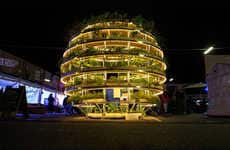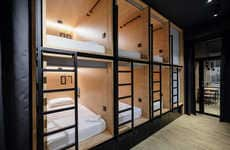
The Rental Space Tower Prioritizes Shared Spaces Over Private Ones
Rahul Kalvapalle — August 5, 2016 — Art & Design
References: house-vision.jp & newatlas
Rental Space Tower is an innovative architectural vision and idea, created by Daito Trust Construction as part of a collaboration with Sou Fujimoto, that is designed to function as a shared rental housing solution that places a higher priority of shared spaces while bringing down the size of private areas such as bedrooms for example.
This architectural design is unique in that it maximizes the size and space associated with the kitchen, garden and library facilities.
Rental Space Tower is truly an innovative residential building design not just because of the manner in which it redistributes space, but the way in which it encourages people to socialize, promoting a sense of community. This kind of arrangement is particularly promising for cities like Tokyo where living space is at a premium, and where people are increasingly lonely due to a work-focused lifestyle that encourages isolation.
This architectural design is unique in that it maximizes the size and space associated with the kitchen, garden and library facilities.
Rental Space Tower is truly an innovative residential building design not just because of the manner in which it redistributes space, but the way in which it encourages people to socialize, promoting a sense of community. This kind of arrangement is particularly promising for cities like Tokyo where living space is at a premium, and where people are increasingly lonely due to a work-focused lifestyle that encourages isolation.
Trend Themes
1. Community-focused Design - Innovative residential design that prioritizes shared spaces over private ones is an opportunity for architects and builders to create community-focused buildings.
2. Social Cohesion Housing - Creative housing solutions that encourage socialization and a sense of community can disrupt the rental space industry by creating new value propositions.
3. Shared Living Spaces - Maximizing and creating shared living spaces could be the future of urban living and a disruptive innovation opportunity for developers and designers.
Industry Implications
1. Real Estate - Innovative residential designs that prioritize community living and shared spaces could be an opportunity for real estate developers to create unique housing offerings.
2. Architecture - Architecture firms can leverage community-focused designs to create unique and functional residential buildings for the future.
3. Hospitality - The hospitality industry can benefit from incorporating community-focused designs to create shared spaces that encourage socialization and connection among guests.
5.4
Score
Popularity
Activity
Freshness

